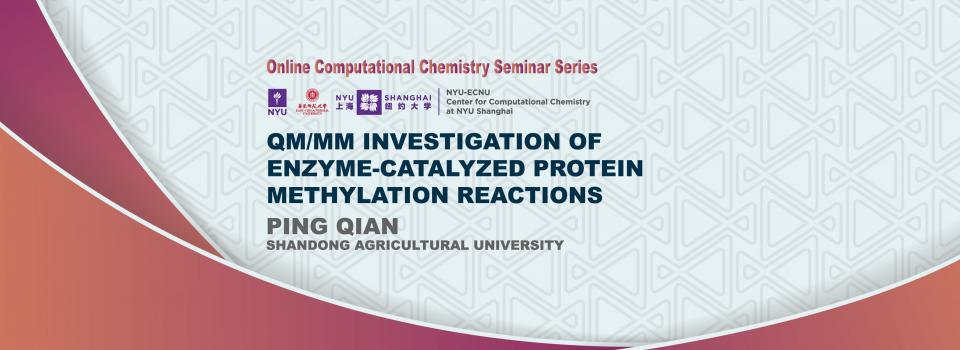
Abstract
As one of the most important post-translational modifications, protein methylation plays an important role in changing chromatin structure and regulating gene expression as well as biological functions. Based on the residues to be methylated on protein substrates, they can be classified as lysine methylation, arginine methylation, histidine methylation and so on. In this talk, we will apply QM/MM MD and free energy (potential of mean force) simulations to study the processes of histidine methylation and arginine methylation. The questions to be discussed include structural and dynamic properties of the SETD3/PRMT7−substrate complex for methylation and catalytic mechanisms of the SETD3/PRMT7 methyltransferases. For β-actin histidine methylation catalyzed by SETD3, it is shown for the first time that the reactive state for methylation in which His73 adopts the Nδ1−H π tautomeric form is stable and His73 is well positioned at the SETD3 active site for accepting methyl group from S-adenosyl-L-methionine (SAM). The free energy simulations are also performed for the methyl transfer in wild-type SETD3 as well as in Asn255Ala and Tyr312Phe mutants, and the origin for the increase of the free energy barrier and decrease of the activity as a result of the mutations is proposed. For the arginine methylation catalyzed by PRMT7, it is demonstrated that the main strategies of PRMT7 in reducing the activation barrier for methyl transfer include formation of reactive (near attack) conformations for the substrate Arg, strengthening the active-site interactions at the transition state, and generation of more effective nucleophiles by changing charge distributions on the target Arg through active-site interactions. More importantly, it is shown that it is a combination of these different factors that determines the PRMT7 methylation activity and substrate/product specificity.
Biography
Ping Qian is an Associate Professor at College of Chemistry and Material Science in Shandong Agricultural University. She obtained her Ph.D. degree at Department of Chemistry and Chemical Engineering, Liaoning Normal University in 2006 under the supervision of Prof. Zhong-Zhi Yang. In 2014, she was funded by China Scholarship Council to study in University of Tennessee Knoxville under Professor Hong Guo. Her research interests include computer simulation of post-translational modifications of proteins using MD and QM/MM simulations and development of polarizable force field as well as ab initio QM study of clay-water molecular systems. In recent years, she has published many papers in the journals such as ACS Catalysis, Journal of Chemical Theory and Computation, Journal of Chemical Information and Computation Modeling, Communication Chemistry-Nature, Organic & Biomolecular Chemistry, Phytochemistry and other internationally renowned journals.
Seminar Series by the NYU-ECNU Center for Computational Chemistry at NYU Shanghai


